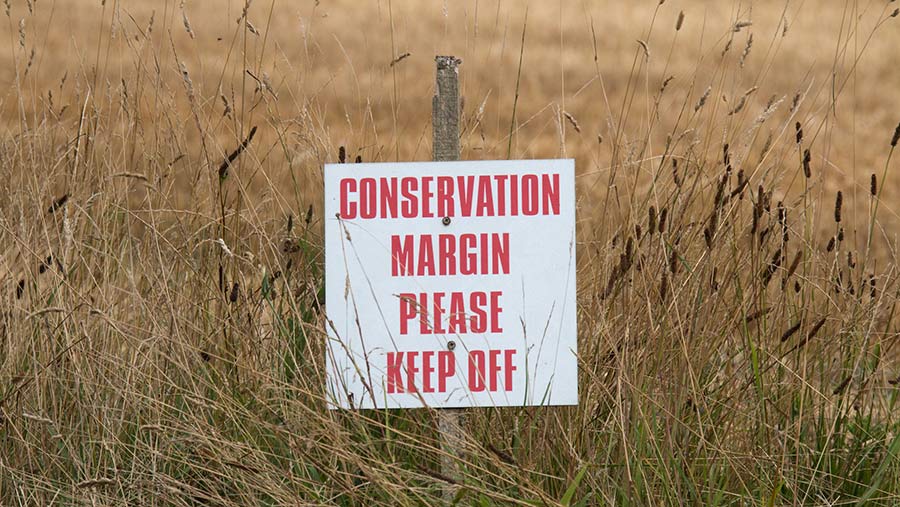Farmers frustrated by slow delivery of stewardship payments
 © Tim Scrivener
© Tim Scrivener Farmers and landowners in England are urging Defra and the Rural Payments Agency (RPA) to get their act together and deliver stewardship payments more quickly.
There is growing frustration among the farming community that the RPA is still lagging behind on the delivery of Countryside Stewardship (CS) and Environmental Stewardship (ES) scheme payments.
Failure to improve the timeliness of stewardship payments risks denting confidence in the upcoming Environmental Land Management (ELM) schemes, say farmers.
See also: Who will benefit from Countryside Stewardship rate rise?
Defra is aiming for at least 70% of the 100,000 farms in England to take part in ELM by the end of the agricultural transition period in 2028.
But farmers have warned that it must improve the delivery of payments if it wants to reach this target.
The RPA published a statement on Wednesday (12 January) extolling its strong payments performance for 2021.
The agency has been praised by the NFU for improving the delivery of Basic Payment Scheme (BPS) payments in recent years.
The RPA has paid out 98.3% of eligible 2021 BPS claims in the first month of the payment window (December).
However, only 62.2% of 2021 Countryside Stewardship Scheme (CS) and 64.6% of claims to the Environmental Stewardship (ES) scheme payments have been made to date.
Farmer angst
Beef farmer Paul Westaway farms a herd of pedigree Aberdeen Angus and Murray Greys on a 73ha county council holding in Dymock, Gloucestershire.
Half the farm has been in a new higher level Countryside Stewardship agreement since January 2020.
The payment window for the 2021 scheme opened on 1 December, but Mr Westaway is still waiting for his payment, worth multiple thousands.
“At the moment, we are all changing our farming practices to get involved in these schemes, and we are all very happy to do so,” he told Farmers Weekly.
“We believe in saving the environment. It’s the right thing to do. But the payment window opened on 1 December.
We have dropped productivity on our farms to do this and we cannot wait for our farms to be paid.
“Our businesses cannot afford to make these sweeping changes to our farms. I cannot carry Defra credit for 18 months.”
Arable farmer Andrew Watts farms 2,400ha in Hertfordshire and his farm business includes owned and contract farming agreements.
Mr Watts said he is owed “tens of thousands of pounds” in stewardship scheme agreements in place across many of the different farms.
“There is no reason why the payments should be delayed. I’ve done my side of the bargain, so where’s the money?” he asked.
“The work has been done and the contract has not been honoured really.”
Mr Watts said Defra has prioritised the prompt delivery of BPS payments in recent years and it has raised its game in this area.
‘Constant challenge’
But he said payments for stewardship schemes seems to be a “constant challenge”, which causes farmers aggravation and anxiety spending valuable time checking if they have been paid.
“It really gives me great concern going forward. If they [Defra/RPA] cannot get the payment delivery right for well-established schemes, what hope have we got for ELM?” he added.
Defra says the RPA received a 40% increase in application for Countryside Stewardship in 2021, in comparison to 2020.
There are now more 40,000 farmers in England participating in either Countryside Stewardship or legacy Higher Level Stewardship schemes.
Environment secretary George Eustice has urged more farmers to sign up to the scheme, which he says is a “bridge” to its ambitious successor – the upcoming Local Nature Recovery Scheme under ELM.
The application window for 2022 Countryside Stewardship agreements is now open.
RPA chief executive Paul Caldwell said: “We have continued to improve our service helping farmers deliver the best outcomes they can and we’ve worked hard to get payments made as quickly as possible – and will continue to do so.
“I understand how important it is to help farmers through the transition period, to help them secure their future and our key focus is to help everyone make the most of the opportunities from the Agricultural Transition Plan.”
